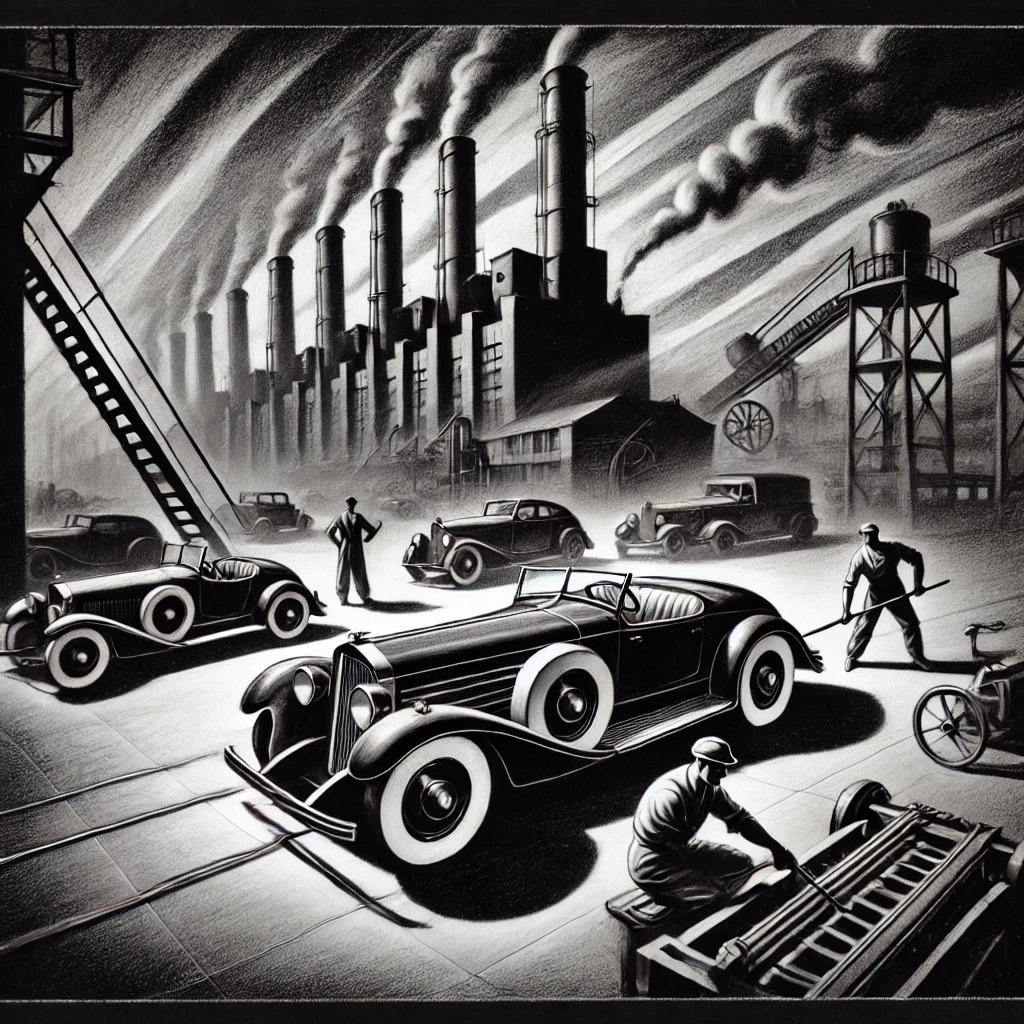
Use Cases in the Automotive Industry
Here we demonstrate how cutting-edge technologies like AI, HPC, and Big Data are transforming the automotive industry.
Automated Manufacturing
Using robots and machines to automate manufacturing processes.
Predictive Maintenance
Using IoT sensors and algorithms to predict maintenance needs before breakdowns occur.
Vehicle Configuration
Digital platforms enabling customized vehicle configuration.
Driver Assistance Systems (ADAS)
Technologies that assist drivers in making safer driving decisions (e.g., automatic braking).
Autonomous Driving
Developing technologies for self-driving cars, including sensors and GPS navigation.
Electric Mobility and Charging Infrastructure
Developing electric vehicles and building the charging infrastructure to support them.
Smart Supply Chain
Optimizing the supply chain using IoT and AI for better efficiency and cost savings.
Vehicle Data Analysis
Leveraging vehicle data for personalized maintenance services and improved customer experience.
High-Performance Computing (HPC) and Supercomputing in the Automotive Industry
HPC and supercomputing are crucial for vehicle technology development and optimizing manufacturing processes.
Vehicle Design Simulation
Using HPC to run simulations to test aerodynamics and safety characteristics of vehicle designs.
Manufacturing Process Optimization
Using HPC to optimize production workflows, reducing manufacturing time and costs.
Enhanced Testing Accuracy
Using supercomputers to improve the accuracy and safety of vehicle testing processes.
Vehicle Integration Systems
Integrating all vehicle technologies and systems to maximize performance.
Multiphysics Simulations
Running simulations to test various physical aspects such as heat, stress, and vibration within the vehicle.
Optimization of Fuel Efficiency
Using HPC to test and optimize fuel consumption and emissions reduction in vehicles.
Market Trend Forecasting
Using HPC to predict automotive market trends and consumer preferences.
Collaborative Design Processes
Using HPC to enable multi-disciplinary teams to work together in real-time on vehicle design projects.
Artificial Intelligence in the Automotive Industry
AI plays a central role in the development of autonomous vehicles and optimization of manufacturing processes.
Autonomous Vehicles
AI-based systems enable vehicles to drive autonomously.
Intelligent Traffic Control
AI for real-time traffic data analysis and optimization for more efficient route planning.
Fault Diagnosis and Repair
AI for vehicle fault analysis and recommending repair actions.
Personalized Driver Experience
AI to adjust vehicle features to the driver's style and preferences.
AI-based Navigation Systems
Real-time updates and predictive analysis for navigation.
Driver Behavior Prediction
AI to predict and analyze driver behavior for improved safety.
Predictive Vehicle Alerts
AI-powered systems to predict and alert drivers about potential issues.
Mobile App Integration
Integrating AI-based features into mobile apps for enhanced vehicle control.
Large Storage Solutions in the Automotive Industry
Managing and storing massive amounts of data from vehicles and manufacturing processes.
Data Storage Optimization
Large-scale storage solutions to store vehicle performance data and sensor readings.
Cloud Integration
Cloud services for the secure and scalable storage of vehicle data.
Data Archiving
Long-term storage and retrieval systems for archived vehicle data.
Data Security
Ensuring the safety and privacy of sensitive vehicle data stored in large databases.
Real-Time Data Processing
Processing data from vehicles in real-time for immediate decision-making.
Data Synchronization
Ensuring data is synchronized across various systems and platforms.
Distributed Storage
Implementing a distributed storage architecture for efficient data management.
Edge Computing
Implementing edge computing for faster processing of vehicle data at the source.
Big Data in the Automotive Industry
The use of Big Data enables deeper analysis of driving behavior and production processes.
Vehicle Behavior Analysis
Using Big Data to analyze driving behavior and improve driver assistance systems.
Production Optimization
Using Big Data to optimize manufacturing processes and identify bottlenecks.
Predictive Analytics
Using Big Data to predict vehicle maintenance needs and production trends.
Traffic Flow Analysis
Using Big Data to optimize traffic flow and reduce congestion.
Weather-Driven Analytics
Big Data to optimize vehicle performance in different weather conditions.
Location-based Insights
Using data to optimize routes and personalize the driver experience based on location.
Vehicle Charging Optimization
Analyzing data to optimize electric vehicle charging based on usage and demand.
Supply Chain Optimization
Using Big Data to streamline the automotive supply chain and improve inventory management.